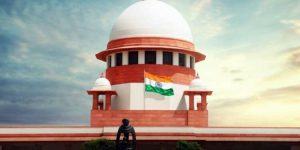Doctrine of Presumption of Constitutionality:

Countering the Supreme Court’s observation that a parliamentary statute enjoys a presumption of constitutionality, petitioners recently termed the new Waqf (Amendment) Act, 2025, a “creeping acquisition” of Waqf properties owned by the Muslim community.
- It is a fundamental principle in Indian constitutional law, rooted in the respect for legislative authority and the democratic process.
- This doctrine posits that legislation enacted by the Parliament or State Legislatures is presumed to be constitutional, and the burden of proving otherwise lies on the challenger.
- This principle assumes that laws enacted by the legislature are inherently valid and constitutional until proven otherwise.
- The doctrine finds its roots in the broader jurisprudential tradition that respects the separation of powers, a foundational element of democratic governance, ensuring that each branch of government operates within its constitutionally prescribed limits.
- The Supreme Court of India, as the apex judicial body, has consistently underscored this doctrine in its rulings, emphasizing that courts should strive to uphold the constitutionality of statutes unless there is a clear and unequivocal breach of constitutional provisions.
- It serves multiple purposes in the legal system.
- It ensures that the legislative process is respected, recognizing that elected representatives, accountable to the public, are best positioned to understand and address societal needs through legislation.
- This presumption also fosters stability and predictability in the legal system, as laws remain effective and enforceable until they are conclusively declared unconstitutional by the judiciary.
- Moreover, it upholds the democratic ethos by preventing undue judicial interference in legislative matters, thereby maintaining a delicate balance between the powers of the legislature and the judiciary.




